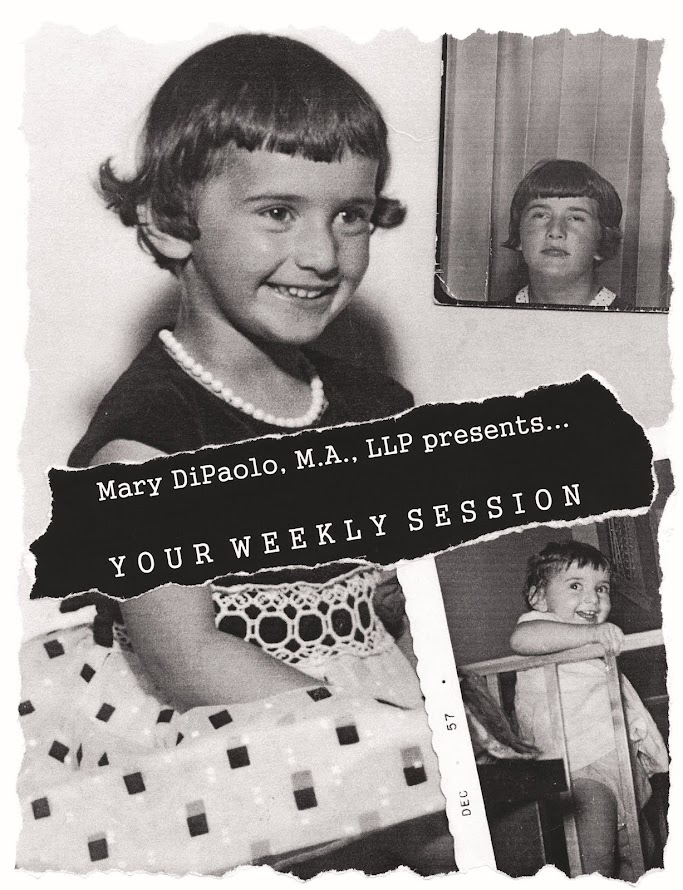I often receive unsolicited emails through my profile on psychologytoday.com. The vast majority are legit inquiries to obtain information regarding my psychotherapy practice. Then there are those which makes me go "Hmmmmmm..???" Since just receiving one of those emails the other day, I thought the timing was right to address the common misperceptions and faux pas to do with seeking out and requesting professional help for the first time from a mental health clinician/practice.
First, it is important that you understand "who" you are contacting. I understand that the pandemic threw a monkey wrench into expecting to speak with and/or make an appointment to see a licensed provider within a reasonable time frame. However, it is NOT helpful when a sender/caller doesn't even know exactly "who" he or she has just contacted because one is working off a series of phone numbers or emails of various and assorted providers. I have actually had phone conversations where the caller suddenly asks me, "Which one are you again?" I have to laugh, because this usually translates to the person wanting to set up an appointment with me. Instead of experiencing such an awkward moment, try being more clear about who you are specifically reaching out to with each initial inquiry for help.
Second, it is unreasonable to expect something for nothing from someone you do not know, but who is a professional in their field. Would you expect a medical doctor or a plumber or a hairdresser to speak with you, as a prospective patient, client, or customer, for "just 15 minutes" so you can decide if you want to make a first appointment or not? Ignorance in this case is not bliss...it's just plain rude. If the provider asks you for information, then you are in a position to provide it and be grateful for the opportunity. However, if you expect the provider to listen to you for 15, 20, or however many minutes gratis (that means for free) while you decide if you want to make an appointment or not---that's a no-no. Everyone's time is valuable; don't presume we somehow "owe" you however much time you want or need just because you got through to us. I know that people who have never before been to see a professional psychotherapist are "not" going to understand the nuances of what constitutes appropriate versus inappropriate expectations in this regard, so now you know. Kind of like being at a party and meeting a dentist, only to start showing him or her that tooth that's been bothering you for the past month. Stop the madness. Get a clue. Our time matters just as much as anyone else's.
I am reminded of the time an acquaintence of a mutual friend called me at 10PM on a Sunday evening. I inadvertently picked up thinking it was someone else. When I realized my mistake, I suggested that the caller contact me the following morning, as I picked up in error. I was told that I was being "completely unprofessional" for not being willing to listen to her on demand in that moment. Of course, I chose not to work with this person who "expected" me to drop everything to attend to her at 10PM on a Sunday night. If you are in a true emergency, that's what calling 911 is for. I am not 911.
Third, recognize that the desire to pursue professional psychotherapy is not like going to the $2.99 dry cleaners. You get what you pay for. If you can't afford the standard rate (which is around $150/therapeutic hour for Masters' level clinicians)...then you can consider the alternative options available to you. Also, please don't assume you can negotiate a lower rate because you think you are good at negotiating. That won't work. If you qualify for a sliding scale (discounted) rate and the provider offers it, you can ask about that. To assume that psychotherapist's hourly rates are negotiable is both rude and disrespectful to the provider and his/her/their profession. Also, if a provider is giving you specific information over the phone...don't make him/her/them "wait" as you have to find a pen or pencil or paper to write with. Again, our time is valuable. Be ready to write down whatever before you even make your first phone call.
Last, understand that the journey of getting and doing better is YOUR work to do, not your psychotherapist's! We who are in the profession come up alongside you to encourage, inspire, and possibly motivate you to do the "right" thing instead of doing what merely feels "right" to you. When clients expect us to have all their answers and solutions stuffed into a nice big box and tied up with a big beautiful bow...this is NOT doing your own work to heal, make positive changes, and grow as a person. The process of healing and recovery is not comfortable. You will feel uncomfortable. The process of healing and recovery is not "instant"; everything takes time and is part of a larger process of change from the inside out.
With that, if you have not yet before considered psychotherapy to help you make the changes you suspect you may need to pursue to be and do better as a person, perhaps the time is right now to send that email/text and/or make that phone call.
You are the author of your own book of life. Make this page your best one yet. Do your work. You can do it.
Until next post...
